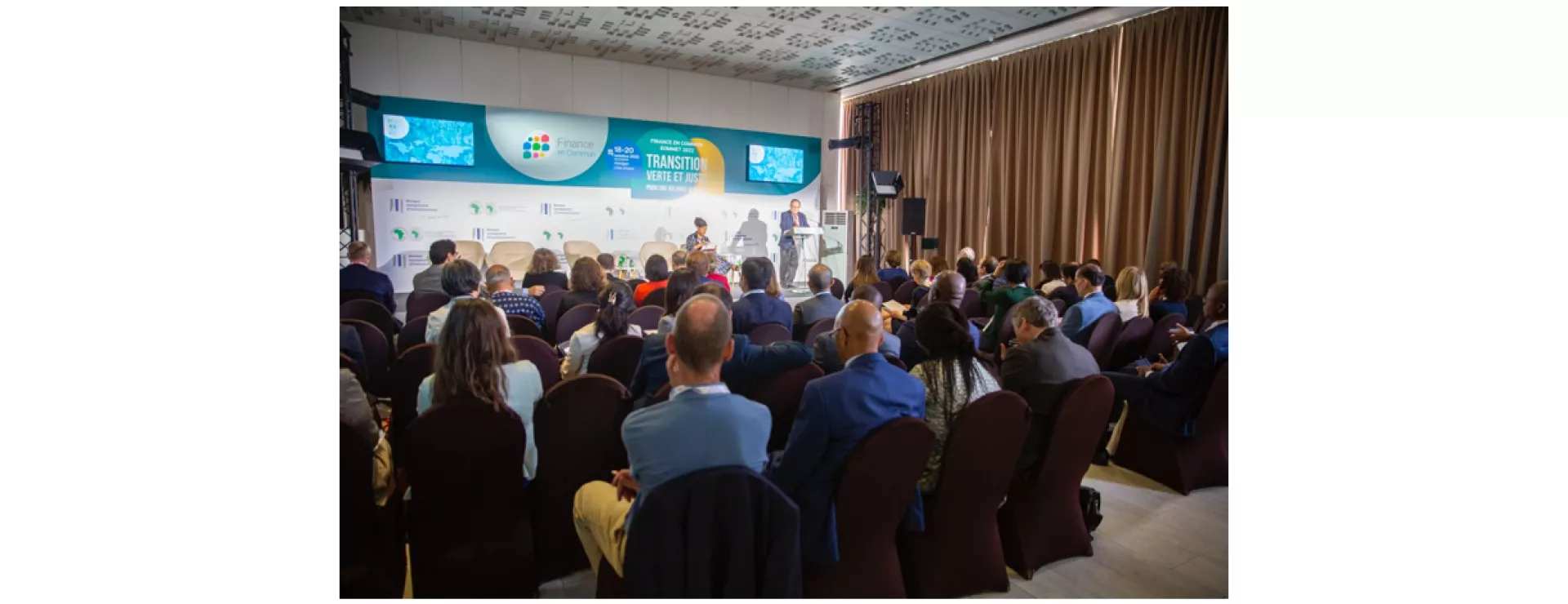The third edition of the Joint Finance Summit was held from 18 to 20 October 2022 in Abidjan. The research conference organised by the French Development Agency (AFD) highlighted eighteen recent works on the role of Public Development Banks (PDBs) in development financing and brought together around one hundred academic and institutional researchers in Abidjan, as well as an average of one hundred online viewers throughout the day.
The seminar was structured around four panels, each of which highlighted academic articles and think-tanks' work that shed light on PDBs. This research provides concrete and evidence-based proposals to support the theory of change supported by the Finance in Common coalition.
At the opening of the seminar, an updated version of the database on public development banks. This database is the subject of a cooperation between INSE of Peking University and AFD since 2019. The latest update (July 2022) shows 522 PDBs identified in the world, totalling more than $23 trillion in assets. For the first time, the database provides financial data collected over a 3-year period (2018-2020): total assets, net liabilities, equity, net interest income, financial result and number of employees.
The key takeaways of the research day by session:
- The first session of the research seminar questioned the role of PDBs as the financial arm of governments, serving national public policies. Their crucial counter-cyclical role and their responses to COVID-19 are now fully documented. Because the international economic outlook for the coming years is bleak, the PDBs will have a crucial role to play in supporting economies and transitions.
- The second session confronted the alignment of PDBs with the Paris Agreement and the 2030 Agenda. While an increasing number of PDBs are integrating the SDGs into their activities, the lack of a common methodology for reporting on their commitments makes it difficult to assess progress towards closing the financing gap of the 2030 Agenda. Various attempts have been presented and discussed, including exploring new frontiers using artificial intelligence (see article Revealing the SDGs with Artificial Intelligence). The lack of alignment with climate goals illustrates how far we have to go to integrate the whole SDG rainbow into operations. The relationship between climate, nature and production remains complex and problematic, and research is still incomplete to capture the full reality of alignment. Key questions remain about the role of interactions and trade-offs between the SDG targets. Further work is needed, calling on PDBs to collect and disclose more information on the impact of their funding.
- The third session looked at the role of the PDBs in the global financial architecture. The conclusion of this session was quite inspiring: in order to accomplish the various tasks that governments could entrust to PDBs, and to acquire the level of credibility that would justify a change of scale (increasing their financial base and their capacity to leverage private finance), these institution must strengthen their links. In particular, they should set up a system in which national banks, which are numerous and aware of local issues, could more effectively relay the international financing made available by regional and multilateral banks.
- The fourth session had a focus on Africa, which clearly demonstrated that "leaving no-one behind" is more than a watchword. During the COVID-19 crisis, African development banks proved their worth. It is time for them to take a more visible place in the global development architecture. Case studies from Tunisia, Rwanda, Ghana, Côte d'Ivoire and Egypt and broader surveys were presented and highlighted the variety of situations. Overall, they highlighted that development banks, when conditions deteriorate, are valuable instruments to help build resilience. Their role for development mandates also emerged in its full potential. The panel concluded that not only should African national governments trust their domestic institutions, but that the international community should also step up its support. At present, it is clear that banks are beginning to think about their role in supporting the green and just transition, but they are currently preoccupied with other economic and financial priorities.
The research conference concluded with 10 recommendations for policy makers synthesising the conceptual inputs applicable to policy makers and financiers in development institutions.

